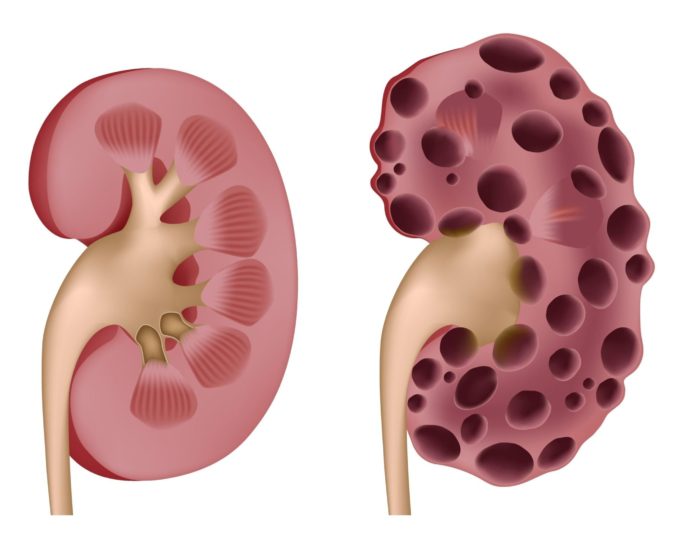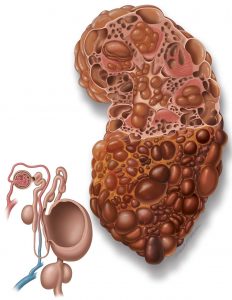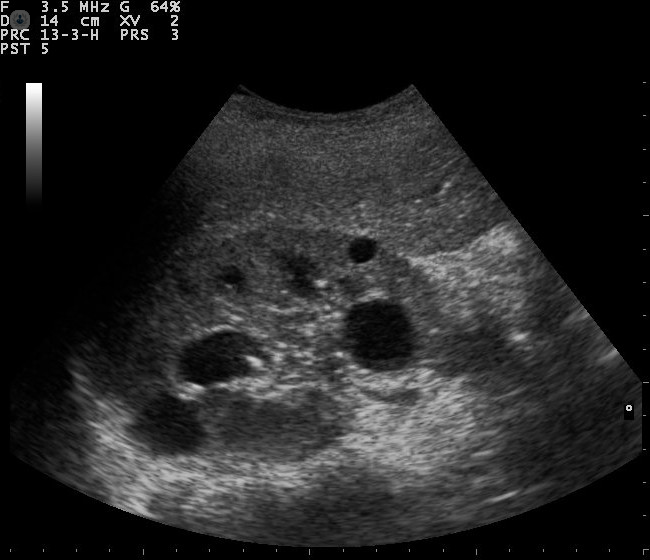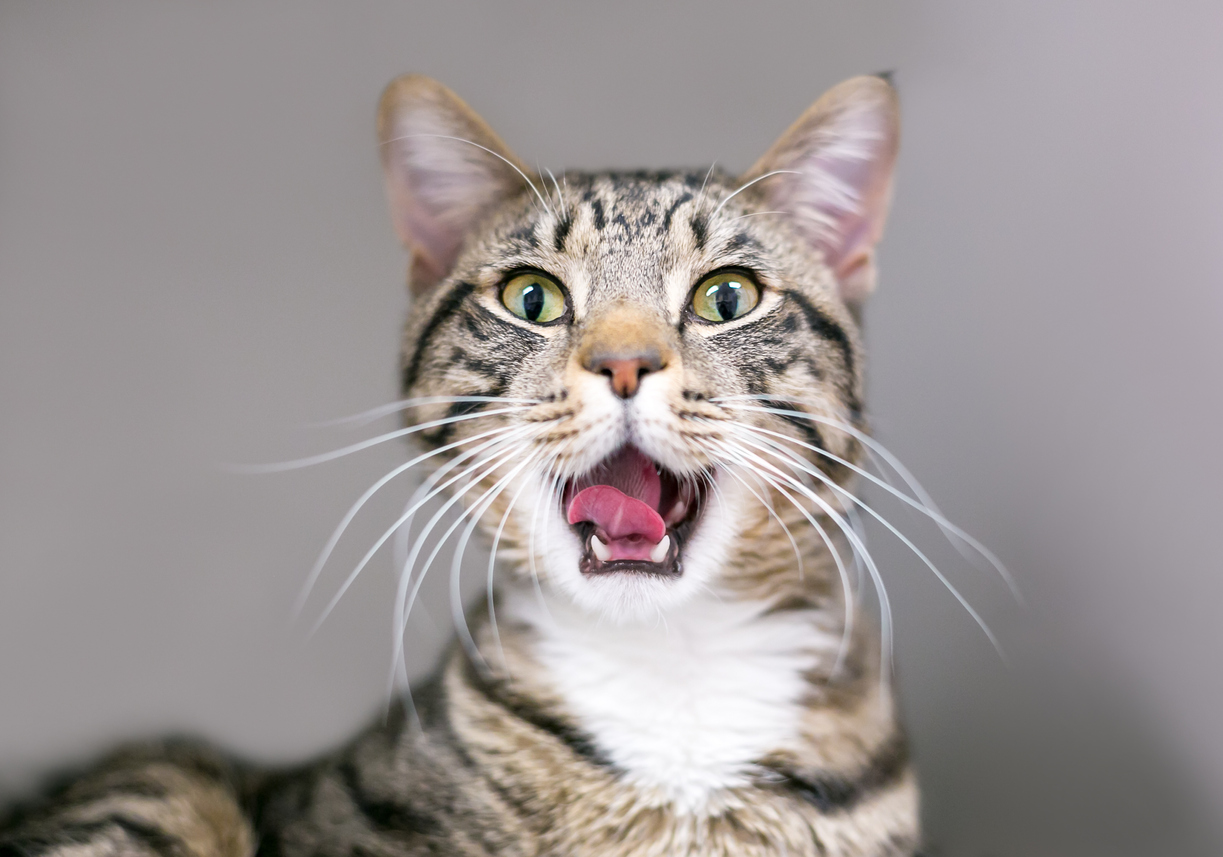Polycystic Kidney Disease (PKD)
What is polycystic kidney disease?
Polycystic kidney disease or PKD is an inherited condition in cats that causes multiple cysts (pockets of fluid) to form in the kidneys. These cysts are present from birth. Initially they are very small but they grow larger over time and may eventually disrupt kidney function resulting in kidney failure.
All cats with polycystic kidney disease have cysts in their kidneys, but the number of cysts and the rate at which the cysts enlarge varies between cats. In most cats, the cysts enlarge slowly and affected cats will not show any signs of kidney disease until later in life, typically around seven years of age. In some cats, kidney failure will occur at a much younger age while in other cats kidney failure will not develop at all. There is currently no way of predicting how rapidly the disease will progress in a particular cat.

What causes polycystic kidney disease?
Polycystic kidney disease is an inherited disease. Unfortunately, PKD has become very common in certain cat breeds.
Persian cats have the highest incidence of PKD. Studies have shown that the disease affects around one-third of Persian cats. Breeds such as Chinchillas and Exotic Shorthairs, that have been developed using Persian bloodlines, also have a significant number of affected cats. In the majority of other cats, especially mixed breeds, it is a rare condition.
PKD is the result of a single, autosomal dominant gene abnormality. This means that every cat with the abnormal gene will have PKD. All with the PKD gene, even those with only a few small cysts or those with no clinical signs, will still pass the genetic defect onto its kittens, even if mated with an unaffected, healthy cat. In other words, a cat only needs one of its parents to be affected with PKD in order to inherit the abnormal gene and be affected itself.

How is PKD diagnosed?
The diagnosis is based on breed, medical history, clinical signs, blood and urine tests, genetic testing, and ultrasound evaluation of the kidneys. Special radiographic dye studies may also be used in certain situations.
If you are interested in purchasing a Persian kitten, it is very important that you verify that it is not carrying the PKD gene. Genetic testing for PKD is available to see if your cat has the defective PKD1 gene, and therefore is likely to develop the condition. For further details about this testing, please ask your veterinarian.
What is the treatment for PKD?
There is no specific treatment for PKD, as the disease causes similar clinical signs to those seen in cats with chronic kidney disease. Special diets, fluid therapy, and medications to reduce nausea and vomiting and to block the absorption of phosphorus are often used to treat the symptoms of kidney failure.




